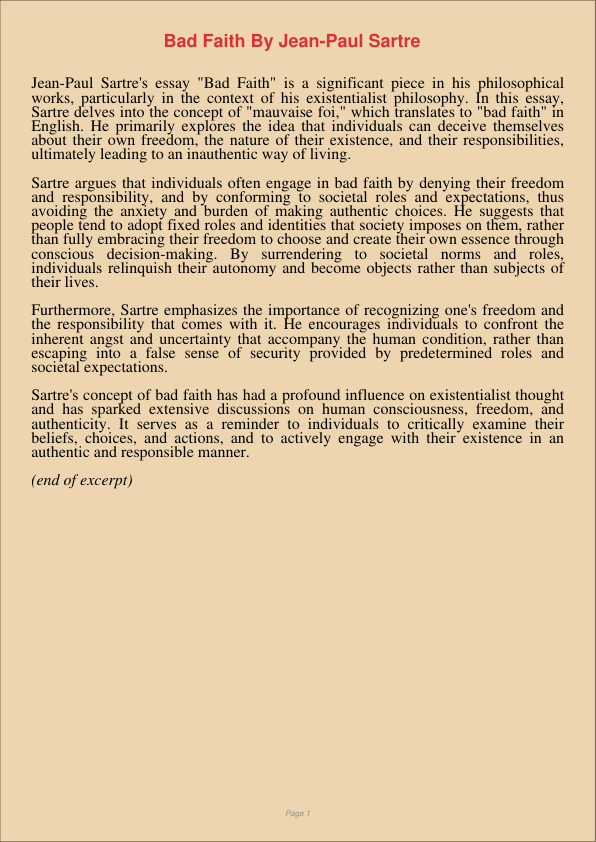Bad Faith By JeanPaul Sartre
Dec 31, 2023
paul sartre
bad faith
Health Sciences & Medicine
Marketing

Jean-Paul Sartre’s essay “Bad Faith” is a significant piece in his philosophical works, particularly in the context of his existentialist philosophy. In this essay, Sartre delves into the concept of “mauvaise foi,” which translates to “bad faith” in English. He primarily explores the idea that individuals can deceive themselves about their own freedom, the nature of their existence, and their responsibilities, ultimately leading to an inauthentic way of living.
Sartre argues that individuals often engage in bad faith by denying their freedom and responsibility, and by conforming to societal roles and expectations, thus avoiding the anxiety and burden of making authentic choices. He suggests that people tend to adopt fixed roles and identities that society imposes on them, rather than fully embracing their freedom to choose and create their own essence through conscious decision-making. By surrendering to societal norms and roles, individuals relinquish their autonomy and become objects rather than subjects of their lives.
Furthermore, Sartre emphasizes the importance of recognizing one’s freedom and the responsibility that comes with it. He encourages individuals to confront the inherent angst and uncertainty that accompany the human condition, rather than escaping into a false sense of security provided by predetermined roles and societal expectations.
Sartre’s concept of bad faith has had a profound influence on existentialist thought and has sparked extensive discussions on human consciousness, freedom, and authenticity. It serves as a reminder to individuals to critically examine their beliefs, choices, and actions, and to actively engage with their existence in an authentic and responsible manner.